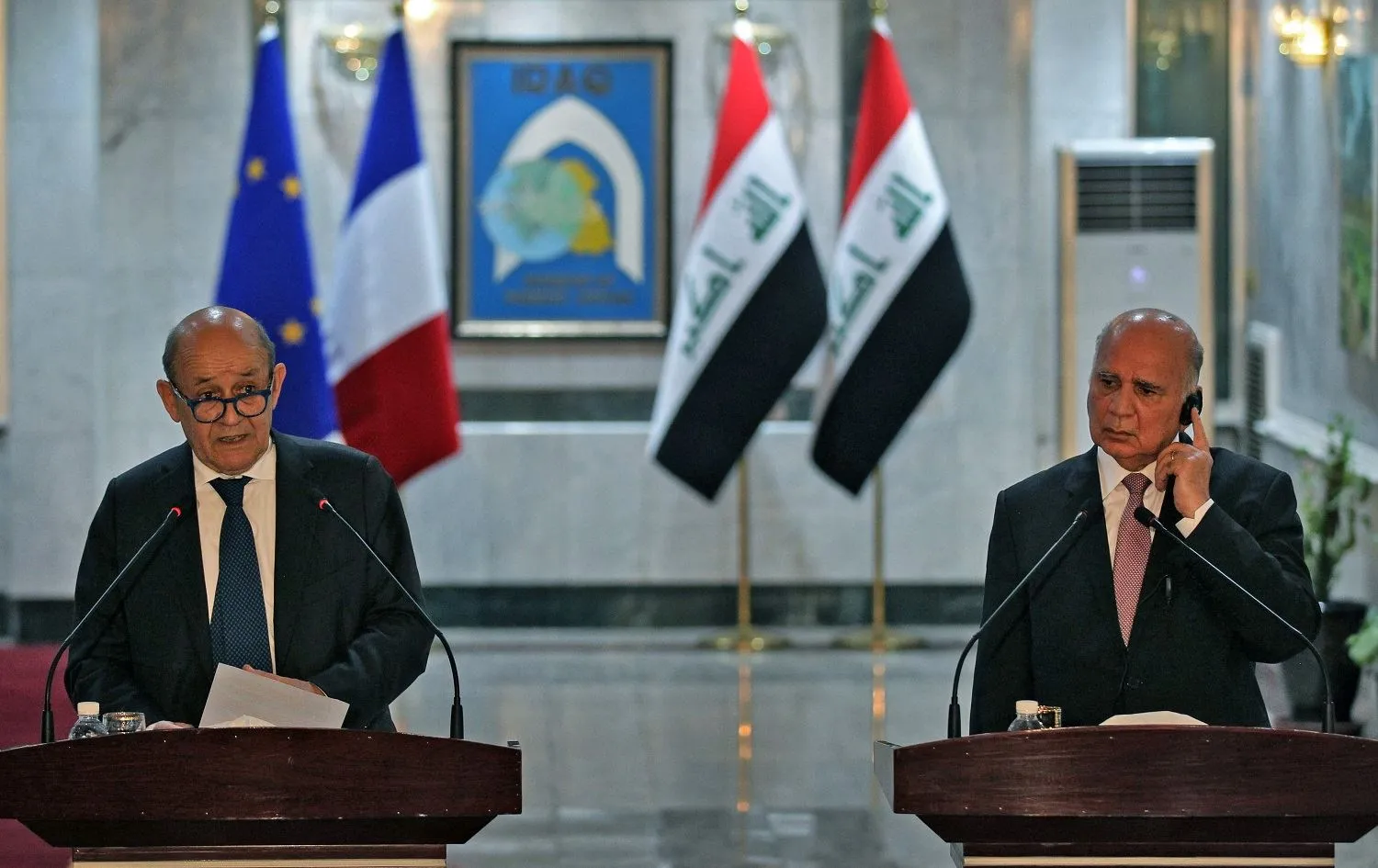Iraqi President Barham Salih called Thursday for the creation of a regional system that secures peace, security and prosperity for the peoples of the Middle East.
During talks with French Foreign Minister Jean-Yves Le Drian, the President said Iraq is looking for an international position in support of protecting its sovereignty and territorial integrity, and stopping repeated Turkish military violations on Iraqi soil.
“The solution to the border problems is through cooperation between the two neighboring countries and avoiding unilateral measures,” he explained.
The President appreciated France's support for Iraq and its contribution to the efforts of the international coalition in the war against ISIS, pointing to the necessity of continuing cooperation, coordination and joint work internationally and regionally to complete the victory by eradicating the hotbeds of terrorism and drying its sources.
Salih also emphasized on activating strategic cooperation between the two countries and the contribution of French companies in the reconstruction of liberated cities, as well as solidarity to confront the coronavirus pandemic.
Le Drian renewed French support for Iraq’s efforts to protect its sovereignty, secure its stability, and achieve the aspirations of its people for prosperity.
The French FM also met with his Iraqi counterpart, Fouad Hussein, who said Le Drian's visit comes in light of security and economic challenges in Iraq.
"We discussed the role of French companies and military and security relations, and ISIS prisoners who hold French citizenship,” Hussein said, adding that they also tackled regional tension and how the European Union can help Iraq.
The Iraqi official said Paris expressed its assurances that it will continue its financial support for Baghdad to restore stability in areas retaken from ISIS, and support the government's efforts in the reconstruction process.
Foreign Ministry Spokesman Ahmed al-Sahaf said in a statement that emphasis was placed on building a real strategic partnership between Baghdad and Paris in light of full respect for Iraqi sovereignty, and making this relationship a factor of balance and stability in the Middle East.
Also, the French FM revealed that his country has mobilized one billion euros to implement major projects in Iraq.
He expressed his country's willingness to provide more support to fight the COVID-19 pandemic.
This is Le Drian’s first official trip outside the European Union since the coronavirus outbreak.
In October 2019, he visited Baghdad and held meetings with top Iraqi officials, discussing bilateral cooperation and means to end the threat of ISIS militants.
National security professor at the Nahrain University Dr. Hussein Allawi told Asharq Al-Awsat that Iraqi-French relations are generally good, adding that the two countries have lately developed their ties in the fight against terrorism.









